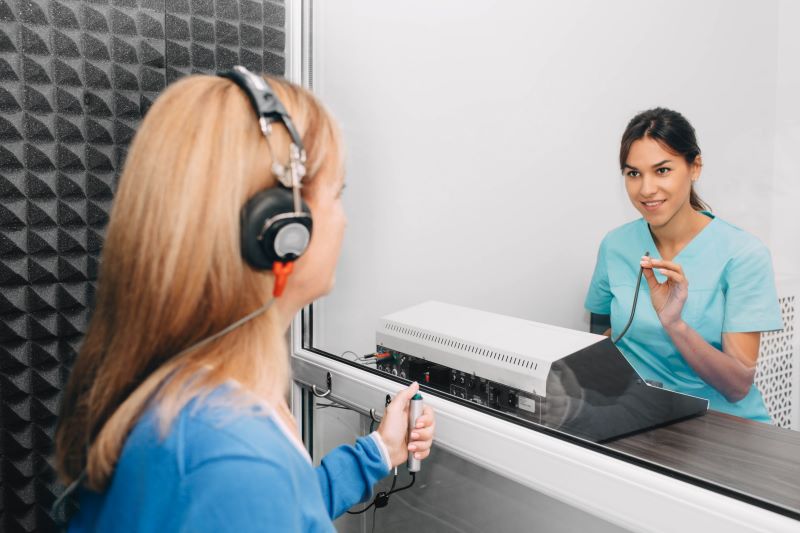Not sure what to expect from your hearing appointment? We’re here to help!
If you’re new to hearing care, then you might wonder what the process looks like. You might even be a little nervous about the whole situation. And that’s okay. Unfortunately, when it comes to certain aspects of healthcare, patients can feel left in the dark about what they should expect.
At Beltone Tristate, one of our goals is to educate our patients about the hearing care process. We want you to feel informed and empowered to ask as many questions as you need to, and to get the best understanding of your situation so that you can make confident decisions about your well-being.
We’re trained not only in testing, diagnostics, and personalized hearing aid fittings, but also in patient care. We understand that one of the keys to having a more successful hearing care experience is through the relationship that we develop with you.
We want you to achieve your hearing wellness goals, and it’s important to us that you consider your hearing health in such a way that you actually have goals you want to achieve!
So, with that in mind, let’s start at the very beginning of your experience, the hearing test process.
Step one: Your personalized hearing assessment
At this point, you’ve already called our practice or sent us a form on our website to set your appointment. Our team should have welcomed you to the practice, and assisted you in any of the necessary paperwork needed to begin your time in our care.
You’ve scheduled your initial appointment, and now here you are! It’s time to begin step one, which is your personal assessment. This is our opportunity to have a discussion about your hearing concerns, and how you feel that your hearing has had an impact on your life.
We’ll ask you a series of questions about where you notice any difficulties with your hearing, as well as some lifestyle oriented questions to help us get a clearer picture of your life and how you like to live it. Sometimes, it’s helpful to bring a companion with you so they can share their perspective on any noticeable changes in your hearing.
This all helps us get a deeper understanding of your symptoms and your perspective, so that when it comes time to provide recommendations, they will be more personalized to your unique situation.
Step two: Your video ear exam
Using a special diagnostic tool, called a video otoscope, we’ll be able to screen your hearing health in a way where you can even see what’s going on deep into your ear canals.
The video otoscope captures imagery of your ear canal as well as your eardrum, and those images are sent to a sent to a computer monitor where they are increased in size and can be assessed by our providers to see if there are any obstructions (such as earwax), if you have an ear infection (which can sometimes affect your hearing), or if there are any visible signs of damage to your anatomy.
This painless, non-invasive test will then lead to the next phase of your hearing care experience, your audiometric test.
Step three: Your audiometric test
Using advanced hearing testing equipment, we’ll assess your hearing through a series of tests that will tell us what frequencies you are missing. These tests will focus on a wide variety of sounds, including speech sounds, and your ability to discriminate between certain words.
Once those tests have been completed, they are compiled into a single report, which is called an audiogram. Your audiogram is completely unique to you, and is essentially a snapshot of your current hearing health. We’ll use that snapshot to discuss the fourth and final step of your initial hearing testing.
Step four: Your results
We’ll take all of the information compiled in your audiogram, as well any pertinent information we learned in initial testing phases, and share our findings with you.
We’ll always discuss your results in language that you can easily understand, and we’ll take as much time as you need to answer any questions that you might have about your hearing health.
If it is determined that you do have a hearing loss and it is the type of hearing loss that can be assisted through the use of hearing aid technology, then we’ll present to you the devices that will be most effective for your type of hearing loss, as well as those that will be compatible with your lifestyle, including any accessories or apps that you might be interested in using to enhance your experience.
Ready to finally take control of your hearing health? There’s no time like the present! Start the year off right by making your appointment with Beltone Tristate TODAY!

